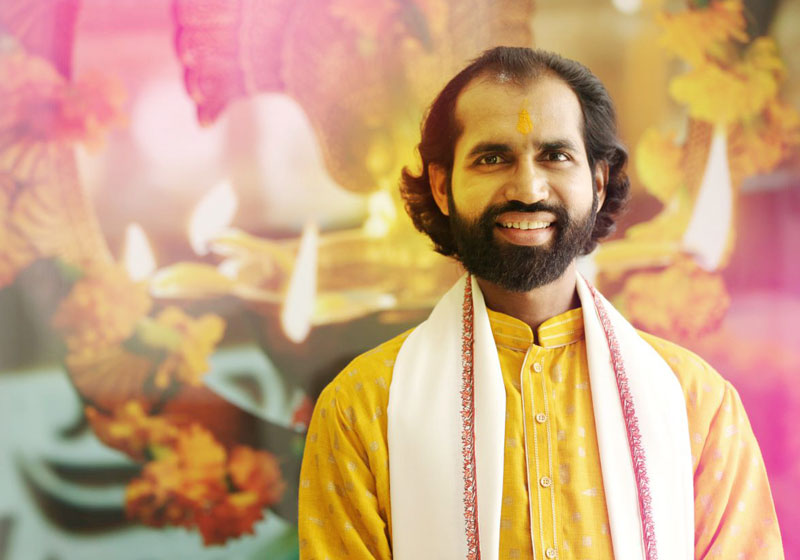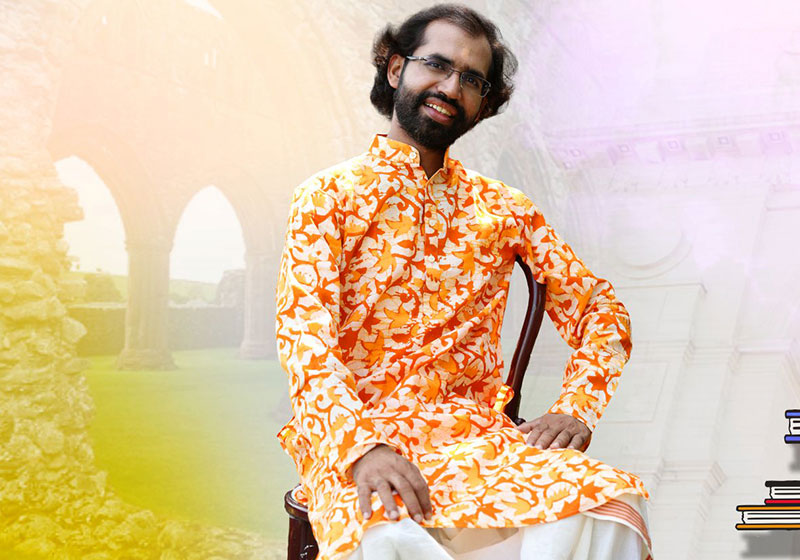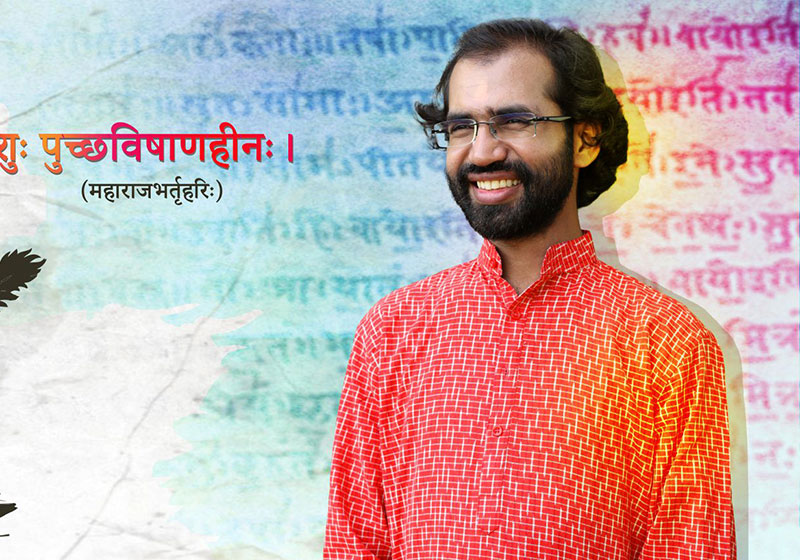He has learnt the Preliminary hymns of the Śākala śākhā of the Ṛgveda in shringeri style under the apprenticeship of Shri R. Ramesh Bhatt.
He has learnt also the Śaunaka śākhā of the first canto of Atharvaveda from Shri Atmaram Pondel.
Dr. Pathak hails from the lineage of the Mādhyandinīya tradition of the Śukla Yajurveda, hence, has received its knowledge and instructions from the eminent Vedic Scholar, Acharya Shri Rameshwar Dayal Sharma and did ācārya in Śukla Yajurveda (with 89.75%) from Maharshi Panini Sanskrit Evam Vedic Vishwavidyalaya, Ujjain MP (2019-2021).
He has conducted a special study of some of these texts, which he has learnt through Guru Shishya Parampara or self cultivation. Some of the prominent ones are :
Sāmaveda Saṁhitā, Śukla Yajurvda Saṁhitā (Mādhyandinīya and Kāṇva), Vāsiṣṭhī Dhanurveda Saṁhitā, Pāṇinīya-śikṣā, Āpiśala-śikṣā, Candragomī-śikṣā, Yājñavalkya-śikṣā, Nāradīya-śikṣā, Gautamī-śikṣā, Lomaśī-śikṣā, Ṛk-prātiśākhyam, Vājasaneyi-prātiśakhyam, Aṣṭādhyāyī, Ārcikalakṣaṇam, Avagrahasūtram, Hitavākyam, Mātrālakṣaṇam, Pratijñāsūtram, Kātyāyana-trikaṇḍikā-snānasūtram, Bṛhaddevatā, etc.



